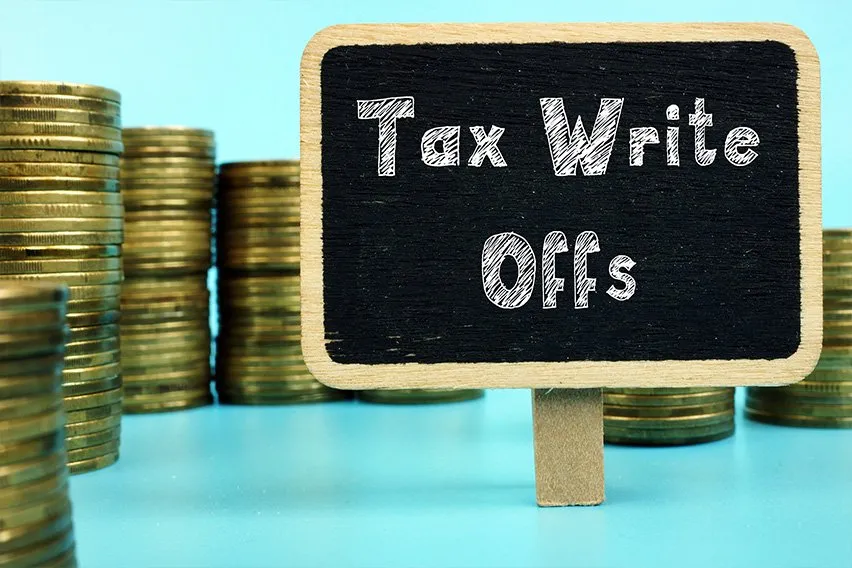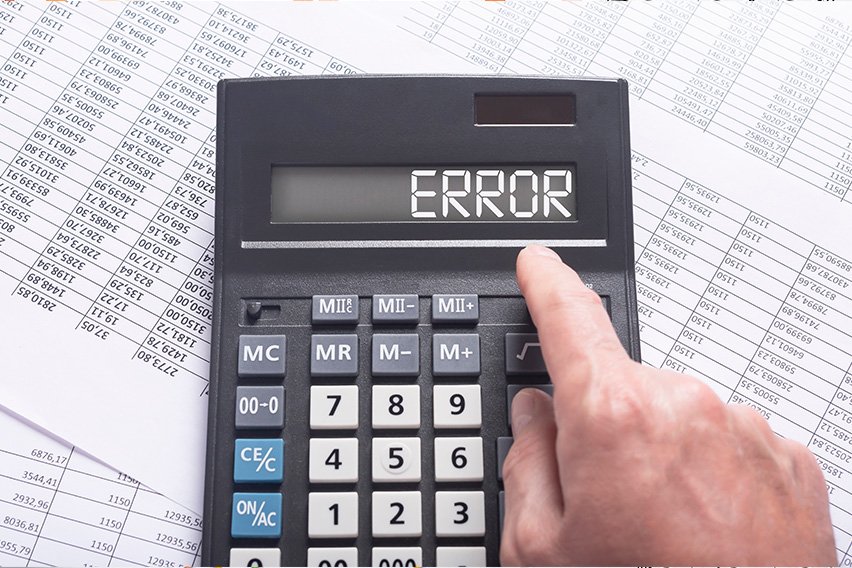What Is a Tax Write Off? Top 10 Deductions for Businesses

Tax write-offs are expenses that individuals and businesses can claim to reduce their taxable income. By claiming all eligible deductions, small business owners can reduce their income tax bill and save money.
In this article, we’ll explore what a tax write-off is, how it works, and what expenses individuals and businesses can claim as a write-off. We’ll also look at ten of the best tax write-offs for businesses, as well as examples of some common tax write-offs to help you find the right tax deductions for your business.
Key Takeaways
- A tax write-off is an expense that you subtract from your taxable income.
- Tax write-offs are used to reduce your total taxable income and decrease your tax bill.
- Individuals, self-employed people, small businesses, and corporations can claim tax write-offs.
- Common tax write-offs include business rent, office supplies, insurance, and business licenses.
- In order for a deduction to qualify, the expense must be ordinary and necessary for your business.
Table of Contents
- What Is a Tax Write-Off?
- How Do Tax Write-Offs Work?
- What Can You Write Off on Taxes?
- 10 Common Tax Write-Offs for Businesses
- Tax Write-Off Examples
- Streamline Your Tax Write-Offs with FreshBooks
- Frequently Asked Questions
What Is a Tax Write-Off?
A tax write-off is an amount that you deduct to reduce your total taxable income, therefore reducing the total tax liability that you must pay. A tax write-off is also called as a tax deduction.
A tax deduction differs from a tax credit in that a deduction is subtracted from your taxable income, while an income tax credit is subtracted from the taxes you owe.
How Do Tax Write-Offs Work?
Tax write-offs work by subtracting an expense from your taxable income. This reduces your total taxable income, which can reduce the amount of your final tax bill. In order to qualify as a write-off, the expense must meet the IRS’s criteria for tax write-offs.
Write-offs can be used to reduce taxable income for both individuals and businesses. The most common tax write-off for individuals is called the standard deduction, which allows individuals to claim a certain deduction amount based on their filing status. If an individual has many expenses like mortgage interest and alimony payments, and these cumulatively exceed the amount of the standard deduction, they may choose to itemize their deductions and claim each expense individually.
Common tax write-offs for businesses include business equipment expenses, office space, and salaries. The IRS explains tax credits and deductions for businesses to help business owners understand the full range of business tax write-offs available to them. 1
The IRS levies taxes using a bracket system in which you pay a percentage of your income based on your tax bracket. 2 By claiming tax write-offs to reduce your taxable income, you may be able to move into a different tax bracket and pay less in taxes.
What Can You Write Off on Taxes?
Learn more about individual and business tax write-offs with details about eligible write-offs for individuals, self-employed people, small businesses, and corporations.
Individuals
Individuals can choose to claim the standard deduction or itemize their tax deductions. The standard deduction is a set amount based on your filing status—in 2024, the standard deduction is $14,600 for single filers or married filers filing separately and $29,200 for married couples filing jointly.
An individual can also choose to itemize their deductions instead of claiming the standard deduction. Some examples of eligible itemized deductions include mortgage interest, property taxes, and charitable gifts.
Self-Employed
If you’re self-employed, you can claim eligible business expenses as a deduction on your taxes. In general, an expense must be directly related to and necessary for your business operations in order to qualify as a tax-deductible business expense.
Some examples of common tax write-offs for self-employed people include advertising expenses, business insurance, and office supplies for your business. You may also be able to claim a portion of your rent or mortgage payments for the area of your home used as a home office, as well as mileage on your vehicle when used for business purposes.
Small Businesses
Depending upon factors like your annual revenue or number of employees, your business may be classified as a small business. This enables you to claim certain tax write-offs related to running your business.
Several key small business tax deductions include payroll expenses, contract labor, and telephone and internet services. If your business uses a physical location, you may also be able to claim things like rent, which can significantly reduce your taxable income.
Corporations
The IRS requires an expense to be ‘ordinary and necessary’ for it to qualify as a valid tax write-off for corporations. This includes common business expenses that are ordinary in that industry and necessary for the company to do business. For example, everyday expenses like rent and payroll are considered ordinary and necessary and are therefore eligible to claim as tax write-offs.
In addition to deductible current expenses that the business incurs on a regular basis, some capital expenses, real estate purchases, or investments can also be claimed. Some of these, like depreciation, are subject to different deduction rules than current expenses and may not be fully tax-deductible in one year.
10 Common Tax Write-Offs for Businesses
There are many tax write-offs available to sole proprietors, small businesses, and corporations. The following list details some of the best tax write-offs for businesses.
1. Advertising Costs
Advertising and promotion for your business are fully deductible expenses. This can include hiring someone to design a new website, costs for hosting that website, social media campaigns, and physical materials like signs and business cards. If you host a promotional event, you may also be able to write off event costs.
2. Business Insurance
Depending on your industry and the state in which your business is located, you may be required to hold certain types of business insurance. You can deduct the business insurance premiums you pay as a qualified business expense.
Some common types of deductible business insurance include property and liability coverage, health and dental insurance for your employees, auto insurance for your business vehicles, and business interruption insurance.
3. Vehicle Mileage and Expenses
If you have a vehicle that you use exclusively for business, you can deduct all the costs of operating that vehicle. This includes vehicle purchase and insurance as well as fuel costs, maintenance, and repairs. Note that the cost of purchased vehicles is usually depreciated over the life of the vehicle
If you use your vehicle for a mix of personal and business purposes, you can only deduct the costs associated with business use. For example, you could deduct gas costs on a business trip, but you couldn’t deduct those costs if you also used your vehicle for personal errands while on that trip. In most cases, mileage tracking is the easiest way to track vehicle travel as a business expense.
4. Contract Labor
If you’ve contracted the work of a freelancer or other independent contractor, you can claim their fees as a business tax write-off. For example, if you’ve hired a freelancer to design a website or a contractor to repair a piece of machinery for your business, these expenses qualify as a business deduction.
5. Depreciation
Some assets, such as equipment and vehicle purchases, cannot be claimed entirely in the year they were purchased. Instead, the costs of that purchase are spread out across the life of the asset and claimed as a partial deduction each year.
If you’ve made a major equipment or other asset purchase, you may need to record that as an asset on your balance sheet and record the applicable depreciation as an expense. The IRS guide to how to depreciate property can help you understand how to claim your depreciation deduction. 3
6. Phone and Internet
If your business requires phone and internet for regular business operations, you can deduct these costs as a tax write-off. For phone and internet services at a business office, these costs are fully deductible. If you have a home office and use your phone and internet for a mixture of business and personal use, you can only claim the percentage of these services used for business purposes.
It’s recommended to keep track of your phone use if you plan to claim a percentage. For example, if your business requires you to make costly international calls, keep a call log to demonstrate that these calls were necessary for professional purposes.
7. Legal and Accounting Fees
If your business requires the services of a legal professional, you can deduct their fees from your taxable income. This applies to both ongoing legal fees and seasonal or one-off professional fees for consultations and services.
You can also deduct fees for other professional services such as bookkeeping and accounting. Note that these must be exclusively for business—for example, you can deduct the cost of hiring an accountant for your business taxes, but not for your personal income taxes.
8. Business Rent
If your business uses a storefront, a warehouse, an office, or another brick-and-mortar location, you can write off the cost of rent for this space. If you run your business from home and have a dedicated home office space, you can also claim the home office deduction as the percentage of your home used exclusively for work.
9. Employee Salaries
Business owners who hire employees can deduct the cost of employee salaries and benefits, as well as associated payroll taxes. Note that for write-off purposes, sole proprietors, partners, and LLC members do not qualify as employees, so these salaries cannot be deducted.
10. Business Licenses and Taxes
You can deduct the cost of licenses for your business, including licenses required by state and local governments.
Tax Write-Off Examples
The following examples outline some scenarios of common tax write-offs for small businesses:
Example 1
Anne’s Graphic Design is a small business that Anne runs from her home office. Since her office takes up 15% of the space in her home and is used exclusively for business purposes, she’s able to claim 15% of her home rent as a business rent write-off.
Anne is also able to claim her graphic design software and home office supplies as business expenses. She also uses 2 phones—a landline as a personal phone, and the other as a business phone. Although she can’t claim the cost of the first phone, she can claim the cost of the second one because she uses it exclusively for her business.
Example 2
Gary’s Cupcakes is a bakery that Gary operates from a kitchen and storefront. He has 2 employees that work there in addition to himself. Gary claims the cost of these 2 employees salaries as well as their health and dental benefits as a tax write-off.
Gary can also claim rent and utilities for this business property, as well as the cost of baking supplies. He also hired a repair person to fix his industrial oven, and he claims the fees paid to this independent contractor.
Streamline Your Tax Write-Offs with FreshBooks
Understanding tax write-offs is key to making the most of your deductions. By claiming your write-offs, you can reduce your total taxable income and decrease your final tax bill. Individuals, self-employed people, small businesses, and corporations can all claim tax write-offs.
FreshBooks accounting software makes it easy to track and record business expenses and deductions, improving accuracy and saving time. It can also generate detailed financial reports to streamline your tax filing process. Try FreshBooks free to get started recording your expenses and claiming your write-offs today.
FAQs About Tax Write-Offs
Learn more about writing off business expenses, land purchases, and business loans with frequently asked questions about tax write-offs.
Can I Write Off Business Expenses on My Personal Taxes?
You can only write off business expenses on your personal taxes if you’re a sole proprietor and file only one personal tax return as part of your Schedule C. If your business is considered a separate entity, you must keep your business expenses and personal taxes completely separate.
Can You Write Off Land Purchase for Business?
You can only write off land purchases as a business expense if the primary industry for your business is buying and selling land. Otherwise, the IRS does not consider land to be an ordinary and necessary business expense. It can, however, be an asset on your balance sheet for the duration of land ownership.
Can You Write Off Business Loan Interest?
If you’ve taken out a loan to fund your business, you may be able to write off any interest you pay on the loan. To be able to deduct loan interest from your taxable income, you must be legally liable for the debt and able to provide proof of payment installations.
Does a Tax Write-off Mean You Get the Money Back?
A tax write-off does not exactly mean that you get the money back—rather, it means that you can reduce your total taxable income by that amount, which can reduce the amount you pay in taxes owed. Although you won’t directly receive the money back, you can still save money by lowering your tax bill.
Article Sources
- IRS, Credits and deductions for businesses, Accessed August 11, 2024
- IRS, Federal income tax rates and brackets, Accessed August 11, 2024
- IRS, Publication 946 (2023), How to Depreciate Property, Accessed August 11, 2024
About the author
Michelle Payne has 15 years of experience as a Certified Public Accountant with a strong background in audit, tax, and consulting services. Michelle earned a Bachelor’s of Science and Accounting from Minnesota State University and has provided accounting support across a variety of industries, including retail, manufacturing, higher education, and professional services. She has more than five years of experience working with non-profit organizations in a finance capacity. Keep up with Michelle’s CPA career — and ultramarathoning endeavors — on LinkedIn.
RELATED ARTICLES




 Types of Errors in Accounting: A Guide for Small Businesses
Types of Errors in Accounting: A Guide for Small Businesses What Is Product Cost?
What Is Product Cost? What Is Credit Risk? It’s the Ability to Repay a Loan
What Is Credit Risk? It’s the Ability to Repay a Loan What Are Standard Costs? They’re Estimates
What Are Standard Costs? They’re Estimates Discontinued Operations: Its Impact on Financial Reporting
Discontinued Operations: Its Impact on Financial Reporting Is Accounts Receivable an Asset?
Is Accounts Receivable an Asset?